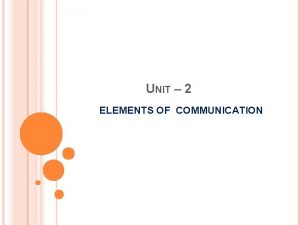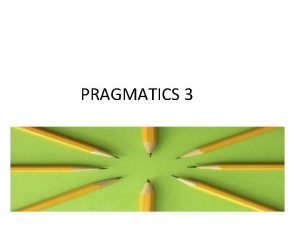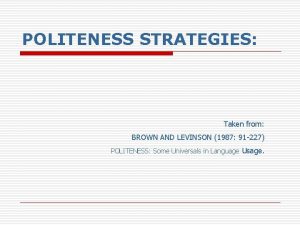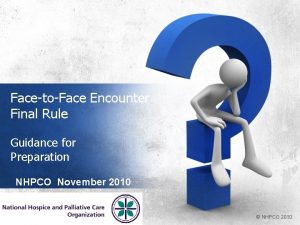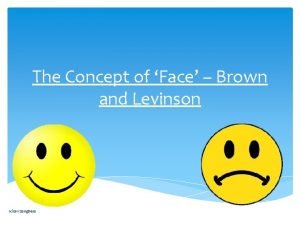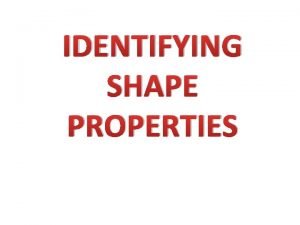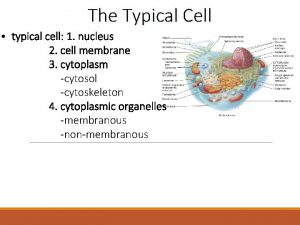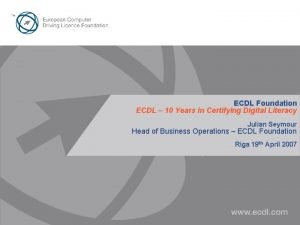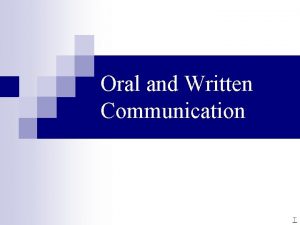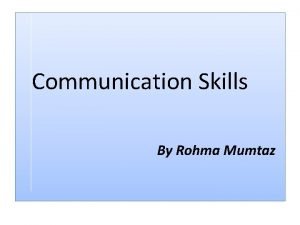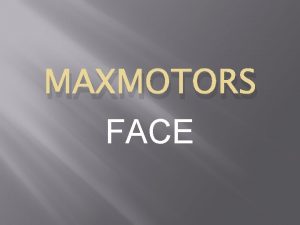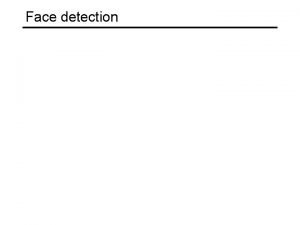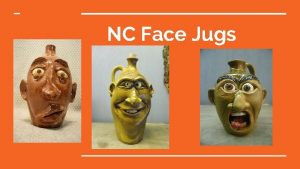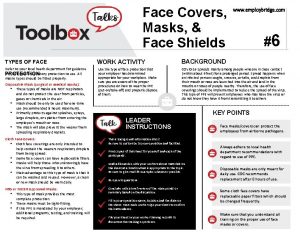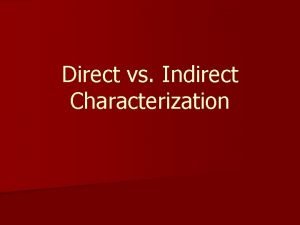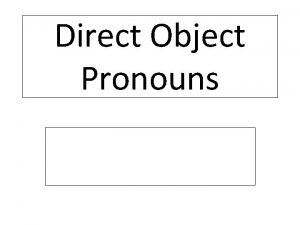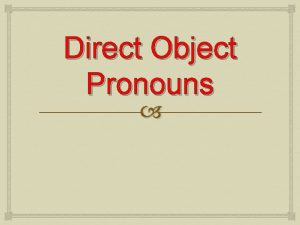ORAL COMMUNICATION WHAT IS ORAL COMMUNICATION Direct face












- Slides: 12

ORAL COMMUNICATION

WHAT IS ORAL COMMUNICATION? Direct face to face communication between two or more persons

HOW IT WORKS? process of sharing meaning process of creating meaning between two or more people.

WHAT IS INTERPERSONAL COMMUNICATION? According to Verderber & Verderber 1986, p. 24, “…… It is the process of gathering sensory information and giving meaning to it. ”

WHAT IS SMALL GROUP COMMUNICATION? An interpersonal communication within groups of between 3 or more, can be up to 20 person. working interdependently for the purpose of accomplishing a task

WHAT IS PUBLIC SPEAKING? It is an oral communication process………. where a person speaking ……. in a structured, deliberate manner to inform, influence, or entertain the listeners.

DEFINITION Great communication skills are your ticket to success in the academic and business world. But have you ever been overcome by fear or anxiety prior to going on a job interview or speaking in front of an audience? Knowing when to choose oral communication and polishing your speaking skills can help you at every stage of your career.


ORAL COMMUNICATION IS THE PROCESS OF VERBALLY TRANSMITTING INFORMATION AND IDEAS FROM ONE INDIVIDUAL OR GROUP TO ANOTHER. ORAL COMMUNICATION CAN BE EITHER FORMAL OR INFORMAL. EXAMPLES OF INFORMAL ORAL COMMUNICATION INCLUDE FACE-TO-FACE CONVERSATIONS, TELEPHONE CONVERSATIONS, OR DISCUSSIONS THAT TAKE PLACE AT BUSINESS MEETINGS. MORE FORMAL TYPES OF ORAL COMMUNICATION INCLUDE PRESENTATIONS AT BUSINESS MEETINGS, CLASSROOM LECTURES, OR A COMMENCEMENT SPEECH GIVEN AT A GRADUATION CEREMONY.

ORAL WITH ADVANCES IN TECHNOLOGY, NEW FORMS OF COMMUNICATION CONTINUE TO DEVELOP. VIDEO PHONES AND VIDEO CONFERENCES COMBINE AUDIO AND VIDEO SO THAT WORKERS IN DISTANT LOCATIONS CAN BOTH SEE AND SPEAK WITH EACH OTHER MODERN FORMS OF ORAL COMMUNICATION INCLUDE PODCASTS (AUDIO CLIPS THAT YOU CAN ACCESS ON THE INTERNET) AND VOICE OVER INTERNET PROTOCOL (VOIP) WHICH ALLOWS CALLERS TO COMMUNICATE OVER THE INTERNET AND AVOID TELEPHONE CHARGES. SKYPE IS AN EXAMPLE OF VOIP.

ADVANTAGES OF ORAL COMMUNICATION There are many situations in which it makes sense to choose oral over written communication. Oral communication is more personal and less formal than written communication. If time is limited and a business matter requires quick resolution, it may be best to have a face-to-face or telephone conversation. There is also more flexibility in oral communication - you can discuss different aspects of an issue and make decisions more quickly than you can in writing. Oral communication can be especially effective in addressing conflicts or problems. Talking things over is often the best way to settle disagreements or misunderstandings. Finally, oral communication is a great way to promote employee morale and maintain energy and enthusiasm within a team.

DISADVANTAGES OF ORAL COMMUNICATION Despite the many benefits of oral communication, there are times when written communication is more effective. For example, you may want to exchange important information that needs to be documented using written communication. A lot of transactions in the business world require some type of written record, and you will find that even strong verbal skills are not a substitute for putting things in writing. Additionally, oral communication tends to be less detailed and more subject to misunderstanding than written communication. It's best to always think carefully about which method of communication best fits your objective.
 Face to face communication definition
Face to face communication definition Positive face and negative face examples
Positive face and negative face examples Off record politeness
Off record politeness Hospice face to face template
Hospice face to face template Pros and cons of telephone interviews
Pros and cons of telephone interviews Positive face negative face
Positive face negative face I have a flat face
I have a flat face With purple fountains issuing from your veins
With purple fountains issuing from your veins Cis face and trans face
Cis face and trans face Face to face class
Face to face class Ecdl.com
Ecdl.com What is oral communication and written communication
What is oral communication and written communication Definition of oral communication
Definition of oral communication
